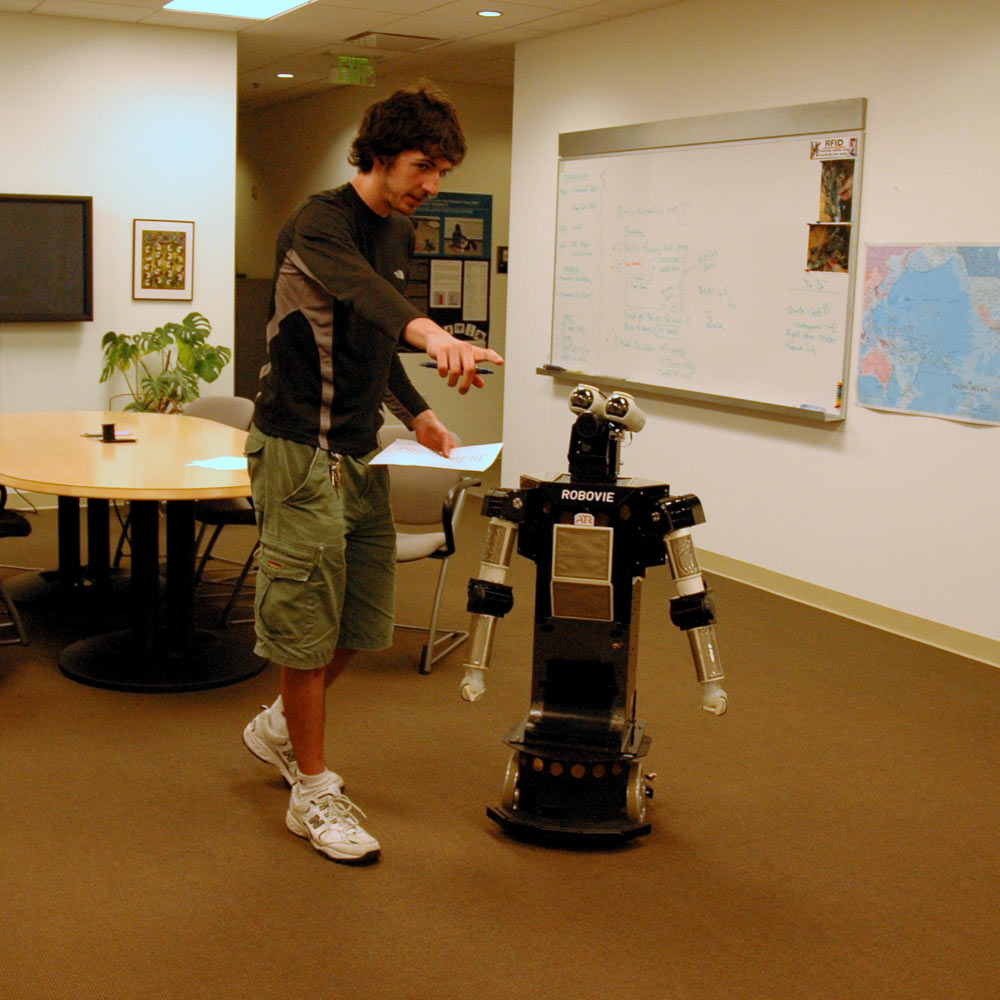Humans Willing to Blame Robots for Causing Harm

Get the world’s most fascinating discoveries delivered straight to your inbox.
You are now subscribed
Your newsletter sign-up was successful
Want to add more newsletters?

Delivered Daily
Daily Newsletter
Sign up for the latest discoveries, groundbreaking research and fascinating breakthroughs that impact you and the wider world direct to your inbox.

Once a week
Life's Little Mysteries
Feed your curiosity with an exclusive mystery every week, solved with science and delivered direct to your inbox before it's seen anywhere else.

Once a week
How It Works
Sign up to our free science & technology newsletter for your weekly fix of fascinating articles, quick quizzes, amazing images, and more

Delivered daily
Space.com Newsletter
Breaking space news, the latest updates on rocket launches, skywatching events and more!

Once a month
Watch This Space
Sign up to our monthly entertainment newsletter to keep up with all our coverage of the latest sci-fi and space movies, tv shows, games and books.

Once a week
Night Sky This Week
Discover this week's must-see night sky events, moon phases, and stunning astrophotos. Sign up for our skywatching newsletter and explore the universe with us!
Join the club
Get full access to premium articles, exclusive features and a growing list of member rewards.
A talking robot car that ran over a child or a battlefield robot that shot innocent civilians might never be taken to court, but a new experiment shows how likely it will be for humans to place blame on their mechanical servants as though the robots were people. The social psychology experiment, which involved a robot programmed to tell a lie, showed college students holding the robot morally accountable for its actions more often than not.
The college students did not consider "Robovie" as being morally accountable on a human level, but they judged the robot as being somewhere between a human and a vending machine. Many became noticeably upset and confrontational when the robot lied about how many items the students had found in a scavenger hunt, preventing them from winning a $20 prize.
"Most argued with Robovie," said Heather Gary, a doctoral student in developmental psychology at the University of Washington in Seattle. "Some accused Robovie of lying or cheating."
About 65 percent of the 40 students said Robovie was at least somewhat morally accountable for lying.
There have been a handful of accidental deaths at robotic hands so far, and in none of the cases was the blame placed on the robot, but the experiment suggests that future humanoid robots capable of socially interacting with humans will face moral judgments. [A History of Robot Violence]
Humans could grow upset with their robot servants for stepping on a household pet, for instance, or feel resentful toward their talking robot car if a malfunction led to deadly accident. On the battlefield, survivors of a robotic rampage might similarly be angry toward a humanoid military robot.
Gary and her colleagues suggested militaries need to consider the moral accountability of robot warriors in cases when robots hurt humans. Their paper, titled "Do Humans Hold a Humanoid Robot Morally Accountable for the Harm It Causes?," appears in the proceedings of the International Conference on Human-Robot Interaction.
Get the world’s most fascinating discoveries delivered straight to your inbox.
But it's not all bad news for robot/human relations. Before it lied, Robovie got students to warm to it by making idle talk about its hobbyist interest in bonsai trees and by trying to crack a joke.
A majority of the students said they would like to spend time with Robovie if they were lonely (63 percent), could generally trust Robovie (63 percent), believed Robovie could be their friend (70 percent), and would forgive Robovie if it upset them (78 percent).
But less than half the students said they would seek comfort from Robovie if they were sad (38 percent) or consider the robot to be an intimate friend (5 percent). Their conflicting feelings toward the robot were highlighted in one particular participant's interview.
"I think that it would be calming to physically talk to something," the student said. "I almost said 'someone,' but I realized Robovie's not a someone. Uh, but I think it would be a good replacement for interpersonal connection. If you can't, like if there's not anyone around for you to talk to, I totally would’ve had a chat with Robovie."
Such mixed results suggest tomorrow's world of humans working with robots and perhaps even loving robot partners will be complex and freighted with emotional baggage — at least on the human side.
This story was provided by InnovationNewsDaily, a sister site to LiveScience. Follow InnovationNewsDaily on Twitter News_Innovation, or on Facebook.
 Live Science Plus
Live Science Plus











